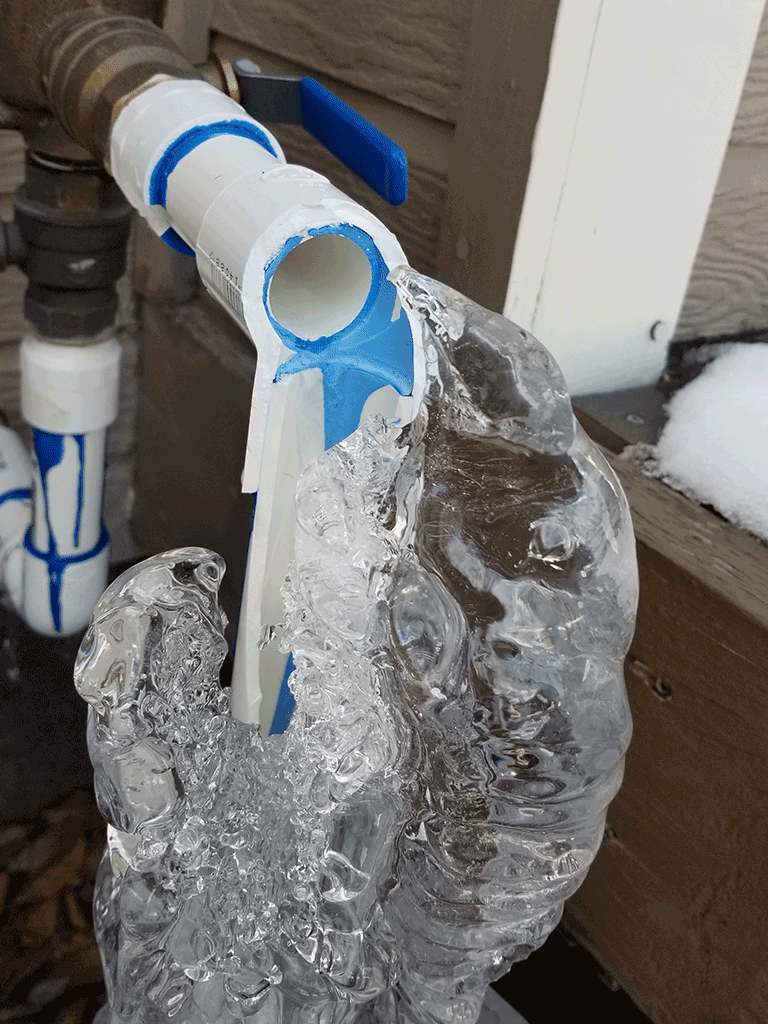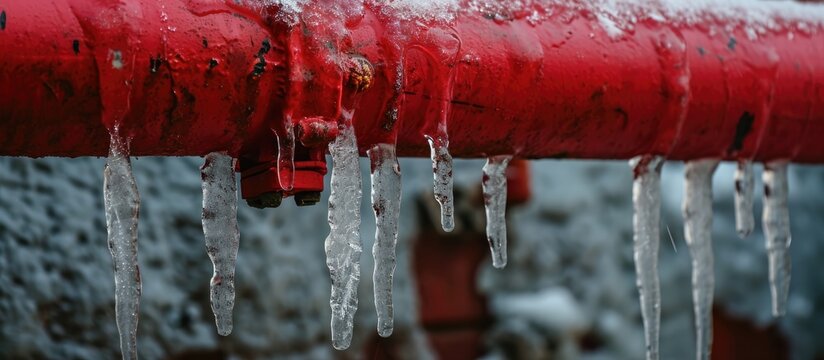How do you actually feel when it comes to 6 Ways to Prevent Frozen Pipes?

Cold weather can damage your pipes, specifically by freezing pipes. Right here's just how to stop it from taking place and what to do if it does.
Introduction
As temperature levels decrease, the danger of frozen pipelines boosts, potentially bring about costly repair work and water damage. Recognizing exactly how to prevent icy pipes is essential for home owners in chilly environments.
Prevention Tips
Protecting vulnerable pipes
Cover pipes in insulation sleeves or use heat tape to protect them from freezing temperature levels. Concentrate on pipes in unheated or exterior locations of the home.
Heating techniques
Keep interior rooms effectively warmed, specifically locations with plumbing. Open up cupboard doors to allow warm air to circulate around pipes under sinks.
How to identify frozen pipelines
Try to find decreased water circulation from taps, unusual odors or noises from pipelines, and visible frost on subjected pipelines.
Long-Term Solutions
Architectural adjustments
Take into consideration rerouting pipes far from outside walls or unheated locations. Include extra insulation to attics, cellars, and crawl spaces.
Upgrading insulation
Buy high-quality insulation for pipelines, attic rooms, and walls. Correct insulation assists preserve constant temperatures and reduces the danger of icy pipes.
Protecting Outdoor Pipes
Garden pipes and exterior faucets
Separate and drain garden pipes prior to winter months. Mount frost-proof faucets or cover exterior taps with protected caps.
Recognizing Icy Pipes
What creates pipelines to freeze?
Pipes freeze when revealed to temperature levels listed below 32 ° F (0 ° C) for expanded durations. As water inside the pipes ices up, it broadens, putting pressure on the pipeline wall surfaces and potentially causing them to rupture.
Threats and problems
Frozen pipelines can cause water supply interruptions, home damage, and costly repair services. Ruptured pipes can flood homes and trigger substantial architectural damages.
Indicators of Frozen Pipes
Determining frozen pipes early can prevent them from breaking.
What to Do If Your Pipelines Freeze
Immediate actions to take
If you believe icy pipes, maintain faucets open to ease stress as the ice melts. Utilize a hairdryer or towels taken in hot water to thaw pipes slowly.
Conclusion
Avoiding frozen pipelines calls for aggressive actions and quick feedbacks. By comprehending the causes, indications, and preventive measures, homeowners can protect their pipes during cold weather.
Helpful Tips to Prevent Frozen Pipes this Winter
UNDERSTANDING THE BASICS: WHY PIPES FREEZE AND WHY IT’S A PROBLEM
Water freezing inside pipes is common during the winter months, but understanding why pipes freeze, and the potential problems it can cause is crucial in preventing such incidents. This section will delve into the basics of why pipes freeze and the associated problems that may arise.
THE SCIENCE BEHIND FROZEN PIPES
When water reaches freezing temperatures, it undergoes a physical transformation and solidifies into ice. This expansion of water as it freezes is the primary reason pipes can burst. As the water inside the pipe freezes, it expands, creating immense pressure on the walls. If the pressure becomes too great, the pipe can crack or rupture, leading to leaks and water damage.
FACTORS THAT CONTRIBUTE TO PIPE FREEZING
Low Temperatures: Extremely cold weather, especially below freezing, increases the risk of pipes freezing. Uninsulated or Poorly Insulated Pipes: Pipes located in unheated areas, such as basements, crawl spaces, or attics, are more prone to freezing. Insufficient insulation or lack of insulation altogether exacerbates the problem. Exterior Wall Exposure: Pipes running along exterior walls are susceptible to freezing as they encounter colder temperatures outside. Lack of Heating or Temperature Regulation: Inadequate heating or inconsistent temperature control in your home can contribute to frozen pipes. PROBLEMS CAUSED BY FROZEN PIPES
- Pipe Bursting: As mentioned earlier, the expansion of water as it freezes can cause pipes to burst, resulting in significant water damage.
- Water Damage: When pipes burst, it can lead to flooding and water damage to your property, including walls, ceilings, flooring, and personal belongings.
- Structural Damage: Prolonged exposure to water from burst pipes can compromise the structural integrity of your home, leading to costly repairs.
- Mold and Mildew Growth: Excess moisture from water damage can create a favorable environment for mold and mildew growth, posing health risks to occupants.
- Disrupted Water Supply: Frozen pipes can also result in a complete or partial loss of water supply until the issue is resolved.
WHY CERTAIN PIPES ARE MORE PRONE TO FREEZING
- Location: Pipes located in unheated or poorly insulated areas, such as basements, crawl spaces, attics, or exterior walls, are at higher risk of freezing.
- Exterior Pipes: Outdoor pipes, such as those used for irrigation or exposed plumbing, are particularly vulnerable to freezing as they are directly exposed to the elements.
- Supply Lines: Pipes that carry water from the main water supply into your home, including the main water line, are critical to protect as freezing in these lines can affect your entire plumbing system.
- Underground Pipes: Pipes buried underground, such as those connected to sprinkler systems or outdoor faucets, can be susceptible to freezing if not properly insulated.
https://busybusy.com/blog/helpful-tips-to-prevent-frozen-pipes-this-winter/

We had been introduced to that report on How To Avoid Freezing Pipes through someone on a different domain. Are you aware of somebody else who is inquisitive about the subject? Take a moment to promote it. I appreciate reading our article about Helpful Tips to Prevent Frozen Pipes this Winter.
Request An Appointment